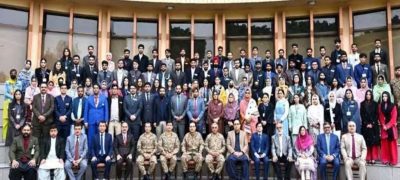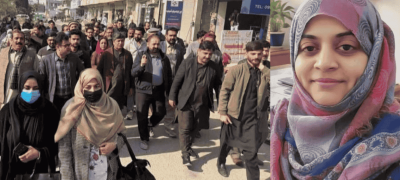The Pakistan Telecommunication Authority (PTA) has proposed a comprehensive regulatory framework that could significantly alter the landscape for Over-The-Top (OTT) services in Pakistan. This framework mandates that popular platforms such as YouTube, Netflix, WhatsApp, Facebook, and X (formerly Twitter) must obtain a 15-year license to operate within the country.
The PTA’s draft, a 14-page document available on its website, categorizes OTT services into three distinct groups: Communication services (e.g., Viber, Skype, WhatsApp), Application services (e.g., Facebook, Twitter, Instagram), and Non-Broadcasting Media Services (e.g., YouTube, Netflix, Spotify). The proposal, now open for public feedback until July 10, aims to streamline and regulate the operations of these services within Pakistan.
Read more: PHC Instructs PTA to Delete Blasphemous TikTok Content
15-Year Local Registration Mandate
Under this proposed framework, OTT Communication Services will need to secure a 15-year license from the PTA. If implemented, these services will have a 12-month window to comply with the new authorisation framework. Failure to do so will render their operations illegal. This stringent measure is reminiscent of the controversial Removal and Blocking of Unlawful Online Content Rules 2021, which has faced significant backlash for its implications on digital freedoms.
Privacy and Data Localization Concerns
One of the most contentious elements of the framework is the requirement for personal data to be stored exclusively within Pakistan. This move aims to enhance data security and local governance but raises significant privacy concerns. The PTA’s draft proposes that content monitoring and evaluation be overseen by relevant government ministries and organizations, potentially increasing governmental oversight of user data.
Critics argue that this requirement could compromise the privacy and security of Pakistani users. Currently, OTT companies store data on servers located abroad, in countries with robust data security measures like Singapore and the United States. Localizing this data could expose it to greater risks, including unauthorized access and misuse by local authorities.
Potential Impact on Freedom of Speech
Digital rights activists have voiced strong opposition to the PTA’s proposal, warning that it represents an attempt to exert greater control over online content. They highlight that similar efforts have been made in the past, reflecting a persistent desire to regulate and monitor digital communication more closely.
“This is not new. They have tried this earlier as well,” said one activist. “They [PTA] want as much control over online content as they can get.” There is a fear that such regulations could force international OTT TV companies to exit the Pakistani market rather than comply with these stringent requirements. This exodus could limit the diversity of content available to Pakistani users and stifle the freedom of expression online.
The framework also references the 2021 Rules, which the Islamabad High Court had previously directed the government to review to ensure alignment with constitutional rights. However, no revisions have been made to date, leaving the controversial rules intact and raising concerns about their potential reapplication under the new framework.
Digital Rights Activists Speak Out
Digital rights activists are particularly concerned about the implications of data localization. They argue that requiring social media companies to store data within Pakistan would grant the government easier access to private citizen data. This could lead to increased surveillance and potential abuses of power.
One activist explained, “At the moment, OTT companies store data in servers located abroad, such as in countries like Singapore or America, where large amounts of money are spent to keep the data secure and encrypted. But PTA wants social media companies to store their data in Pakistan, so that whenever the government asks for a private citizen’s data, these companies will have to provide access.”
The concerns extend to the broader impacts on press freedoms and the free flow of information. The 2020 proposed regulation, which was later rejected by the Senate Functional Committee on Human Rights, had similar intentions of localizing online data of Pakistani users. Activists worry that the newly proposed framework might face the same fate if not carefully reviewed and modified to safeguard digital rights and freedoms.
In conclusion, while the PTA’s proposed regulatory framework aims to create a more controlled and secure digital environment, it raises significant concerns about privacy, freedom of speech, and the potential for governmental overreach. As the public feedback period progresses, it remains to be seen how the PTA will address these critical issues and whether the framework will undergo necessary revisions to balance regulatory goals with the protection of digital rights.







